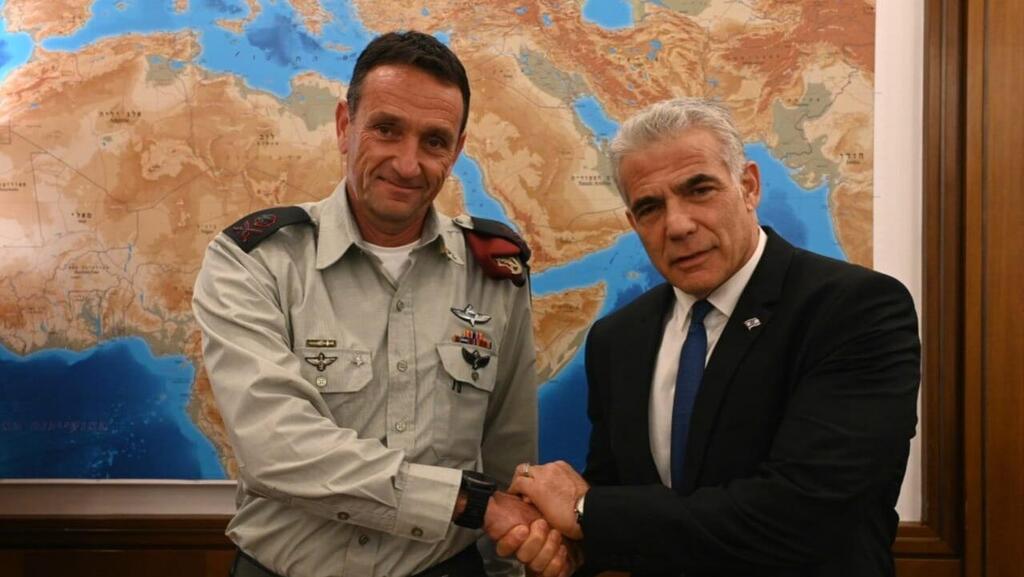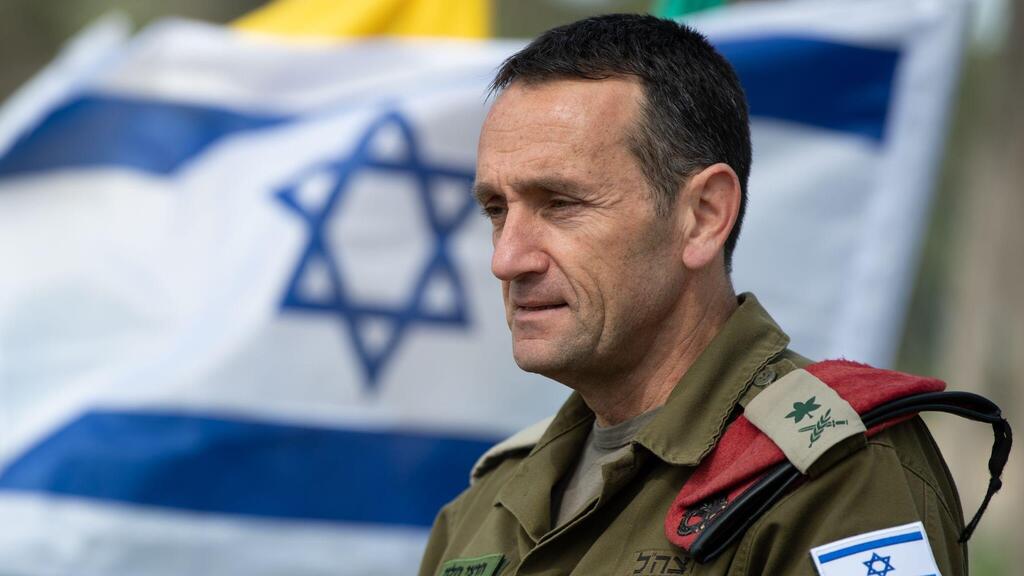Publications
INSS Insight No. 1653, October 27, 2022
The appointment of the new IDF Chief of Staff is an opportunity to examine fundamental issues and significant challenges that will likely figure during his upcoming tenure. The success of the Chief of Staff and the enhancement of IDF strength are not the exclusive responsibility of the commander of the military and are not only military matters but are rather a critical issue for Israel’s national security, which requires the involvement and direction of the political echelon. This article considers several of the most urgent issues regarding IDF force buildup that the incoming Chief of Staff will confront: the erosion of the idea of the people’s army; the formulation of IDF manpower policy in light of declining enlistment; decreasing ability to retain quality manpower and the reduction in the number of active duty reserve soldiers; the challenge of the IDF’s logistical preparedness; and the challenge of ground forces preparedness.
As expected, the Israel government approved the appointment of General Herzi Halevi as the 23rd commander in chief of the IDF. The success of the Chief of Staff and the enhancement of IDF power are not the exclusive responsibility of the commander of the military and are not only military matters but are rather a critical issue for Israel’s national security, which requires the involvement and direction of the political echelon. This essay will relate to several of the most urgent issues regarding IDF force buildup that the incoming Chief of Staff will confront.

The erosion of the idea of the people’s army: David Ben Gurion presented his vision of the IDF as “the people’s army,” in which enlistment would be compulsory for all and would reflect the melting pot policy of Israel’s multicultural society. Over the years, however, the model of the people’s army has weakened, raising the question of the IDF’s role in Israeli society. Induction statistics show a sharp reduction in the rate of new soldiers enlisting, and 2020 marked a low point, with only 64 percent of those obligated to enlist doing so. The sectors that overall do not enlist, primarily ultra-Orthodox Jewish and Arab communities, comprise a rising percentage of the population at large. At the same time there is the unfulfilled potential of national and civil service, which included just 18,000 volunteers in 2022, of whom 30 percent were Arab and Druze. Among populations that do serve, and especially among the upper classes, there is reduced motivation for service in general, as well as reduced interest in combat service and the army as a career. This trend led the IDF to cancel its motivation survey in 2007, after hiding the results for years, and finding only 64 percent motivation for combat service. However, avoiding the statistics neither changes them nor solves the problem.
Furthermore, the public is increasingly critical of the IDF as an organization (in contrast with its role as a security body). Issues such as officer pensions and service conditions contributed to reduced trust in the IDF (a survey by the Israeli Democracy Institute found a 12 percent decrease in January 2022), particularly regarding its financial conduct (in a 2020 survey by the Institute for National Security Studies, 51 percent of respondents chose the answer “the IDF does not conduct its finances correctly”) and conduct towards soldiers. In this context there was, for the first time, majority support for transitioning to a professional army model; these statistics almost certainly reflect dissatisfaction with the current situation rather than a deeply reasoned choice to leave behind the people’s army model.
Source: Israeli Democracy Institute, based on statistics from the IDF Manpower Directorate
Career army service and reserve duty: The IDF, a reflection of Israeli society, is influenced by dramatic changes in the labor market and trends in society. Alongside the erosion of the “combat ethos,” it is increasingly clear that the military struggles to retain much-needed talent in its ranks. The number of active reserve duty soldiers, which according to The Marker is just 4 percent, long ago reached the point where the few who perform meaningful service as reservists are essentially volunteers, who thereby shoulder a significant burden.
IDF logistical preparedness: Over recent years many questions have arisen regarding the IDF’s preparedness for the next war. The charge that “the IDF isn’t ready for the next war” is likely an overstatement, but it is also clear that the IDF’s logistical preparedness must be strengthened, while examining the military’s needs over the long term. One of many examples occurred during Operation Guardian of the Walls – due to privatization, operational plans depend on vehicles driven by Arab drivers, yet it is difficult to rely on their appearing for duty and fulfilling this role amidst an event of this sort. The new Chief of Staff will also need to deal with the budgetary implications of the current US aid agreement, whereby from 2025 there will be a dramatic reduction, practically a cancellation, of the conversion policy that allows converting 26 percent of the aid to Israel to Israeli shekels. This will create a major burden on the IDF shekel budget, and in turn have serious implications for force buildup.
Erosion of ground forces preparedness: The fitness of the ground forces, which comprise the majority of IDF combat forces, has eroded in recent years for a variety of reasons: avoiding the use of force in recent campaigns, which leads to a sense of insignificance among compulsory and reserve duty soldiers and undermines the forces’ confidence in themselves and willingness to deploy them; preparedness gaps between compulsory and reserve duty soldiers, which raise questions about the ability of reserve units to fulfill their role; and the emphasis on air, intelligence, and special forces, which contributes to the reduced significance of the principal ground forces.
Policy Recommendations
Human Resources: The new Chief of Staff and the Ministry of Defense should promote via legislation the establishment of civilian-security service, which will strengthen public security and home front security during emergencies. The security establishment will continue to prioritize military service when screening candidates; those who will not serve in the military can be referred to public security bodies, search and rescue units, law and order agency, and other security bodies on the civilian front. In parallel with this legislation, there should also be extensive administrative work to determine the desired size of the IDF, in accordance with a national security concept that should be authorized by the cabinet and an operational concept that meets current and future challenges.
At the same time, the Chief of Staff should update career service in the IDF: create conditions for retaining quality manpower among combat forces and retaining talent in technological forces, while taking into consideration the changing nature of work and learning from other security organizations in Israel and around the world. He must restore, via legislation and with a new public discourse, the appreciation of the IDF as a capable and talented body, and the perception that those who serve in it merit praise.
Force Buildup: In the new operational concept the role of the ground forces must be updated. The steps necessary to strengthen the ground forces – measures whose seeds were already sown in small, singular frameworks in the ground forces – must be derived from this concept, including: the building of modern forces, which combine the most advanced autonomous tools; the embedding of intelligence; and firepower capabilities. Such forces will include a strong reserve corps component, which is equal in capabilities to regular army forces and can fight alongside them in combat. These reserve duty units will have a specific budget allocated in the framework of the IDF reserve duty model. Force buildup in the IDF must be based on updated, implementable operational plans; approval of these plans by the political echelon will prove the intention to execute them in emergency situations. The major technological changes in cyber and social media, fire at all ranges, and active defense must be incorporated, not only in islands of elite forces but throughout the entire IDF. This must occur while recognizing budgetary constraints, including the implications of the US aid agreement, cost-saving and greater efficiency wherever needed, and emphasis on preparedness and strength.
A military seen by both those who serve in it and the Israeli public as efficient and prepared for its missions is a military that can retain talent and fulfill its aims when needed.




